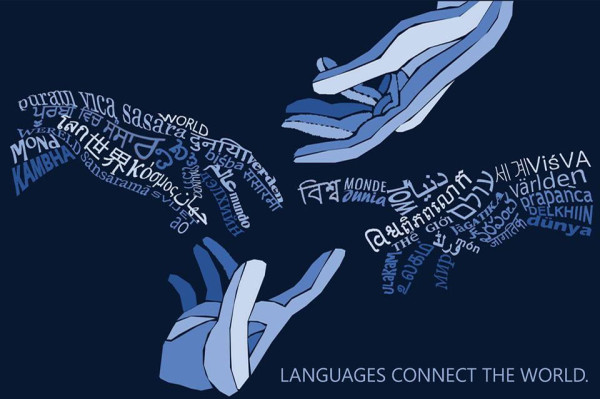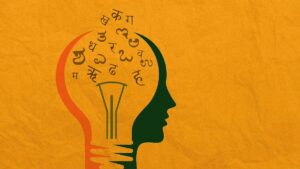
What is the meaning of the phrase “mother tongue”?
It merely means the language which a person has grown up speaking. The language one speaks ever since they were a child. A language that is a large chunk of one’s cultural identity. A language that can decide whether you truly belong.
I grew up in Mumbai in a family that speaks only English at home. It’s the language I am most comfortable with, it’s the language my mind functions in, my internal monologue – if you will – is in English.
But then I learned that I have a “mother tongue”: Marathi. This caused some confusion: my own mother speaks English; how can Marathi be my mother tongue? My family can trace their roots, on both my parents’ side back for generations in Mumbai, but today neither side speaks Marathi at home. They all speak English. Yet officially my mother tongue seems to be the language of the state I come from, Marathi, regardless of whether we speak it or not.
When I came to Manipal, I heard so many different languages, from Kannada to Malayalam to Tamil and when someone asked me what language I speak, I automatically say English with a little bit of Hindi. On learning I am from Mumbai the next question usually is: so, do you speak Marathi? My answer is usually an awkward laugh and a change in topic.
Should I be ashamed that I do not speak this language? The importance of speaking one’s mother tongue is not lost on me for sure, but growing up only speaking English, I certainly do not identify with the language I am expected to speak.
Never once in Mumbai, was not speaking Marathi an issue; everyone speaks Hindi or English fluently. Marathi, despite being the state language is not the language you hear spoken in the streets around you.
But in Manipal, I often feel like an alien being among those who do speak their mother tongue. Most people here seem to have communities they automatically belong to, just because of the language they speak. A safety net to fall back on when you do not know anyone around you, an automatic group of friends, a stranger you just met who becomes your friend all because of a common language, a mother tongue.
So where does someone like me fit in in a place that gives such importance to speaking one’s mother tongue?
I become an automatic outsider who not only doesn’t speak her mother tongue but is also unable to converse with people who choose to speak their mother tongue. Having grown up in cities where this has never been something I have had to deal with, adjusting is a monumental task, to say the least.
But I do wonder, with everyone around me conversing so fluently and freely in their mother tongues, am I the one at a disadvantage here?
There are others like me out there, those who grew up in different countries or in states other than their native state or simply those who, like me, just don’t speak their mother tongues at home. People who feel like they might not fit in just because they do not speak their mother tongue.
There are others like me, standing on the outside looking in, but the experience isn’t spoken about much. Telling someone you do not speak your mother tongue usually just gets you either a pitying or an entirely confused look, never to be mentioned again. Is it something to be ashamed of?
Would it truly make a difference if I were to learn Marathi today? I highly doubt it. The language of the world is English, a language I am more than comfortable speaking, a language I identify with and consider my mother tongue.
Not least because it is the language my mother actually speaks.
Written by Abigail Rebello for MTTN
Edited by Saher Kalra for MTTN
Featured image by UNESCO
Artwork by www.feminisminindia.com

Leave a Reply
You must be logged in to post a comment.